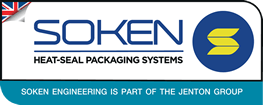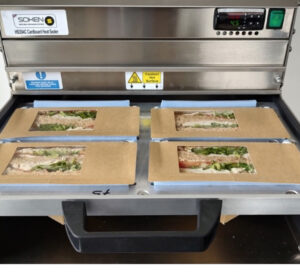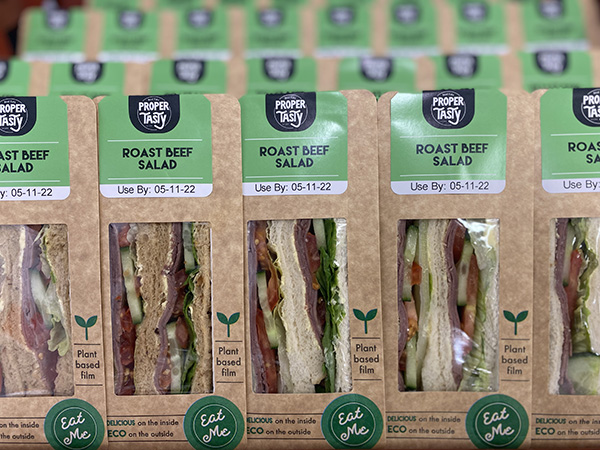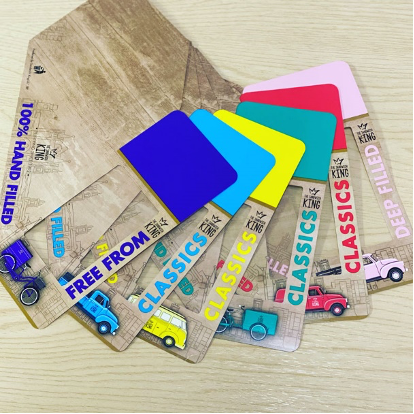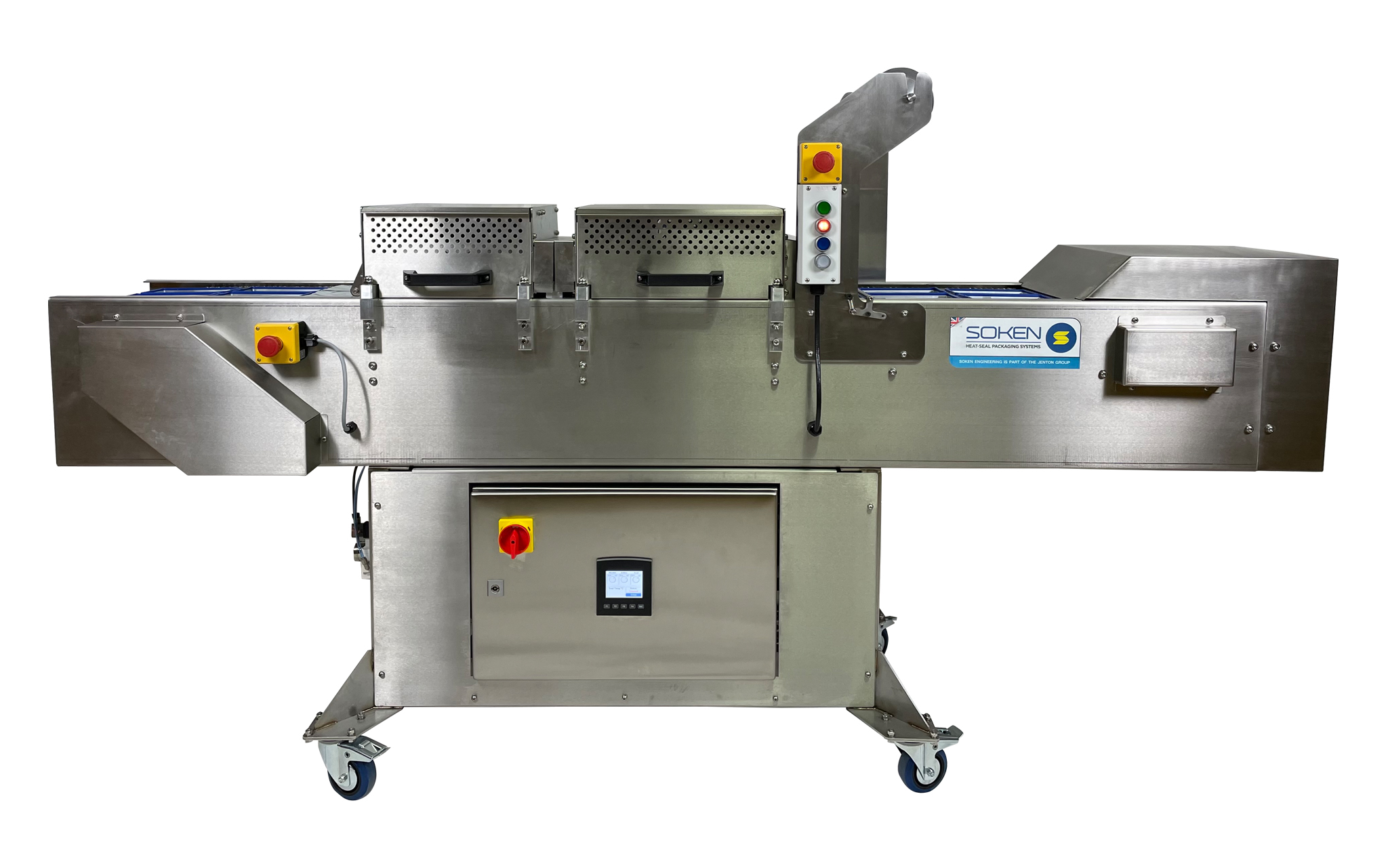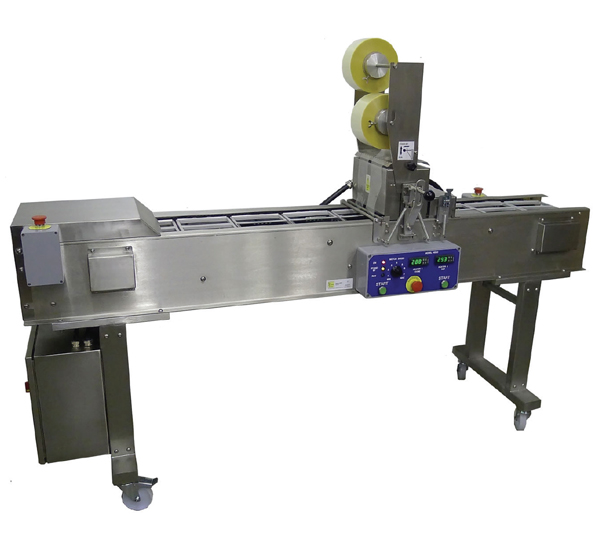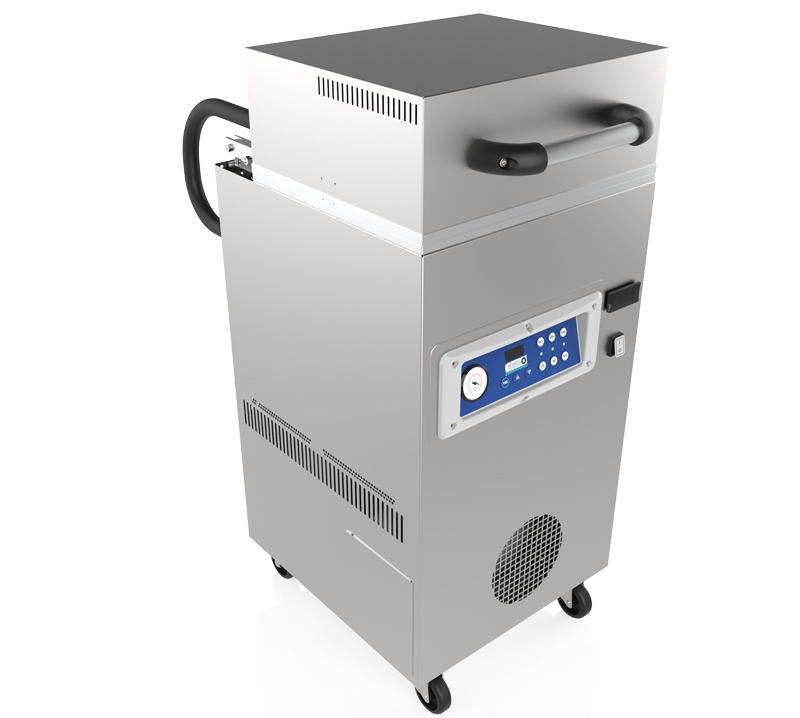Having five Soken heat sealing machines and another on order, family-run enterprise The Brunch Box Sandwich Company is a longstanding advocate of the British engineering firm’s sandwich sealer systems. Sales Director David Masters describes the company’s Soken kit as being so well-engineered, reliable, and easy to work with that he can rectify most problems, switch out components and perform most of the maintenance tasks himself. In 10 years, David exclaims that they’ve never had a machine go down long enough to interrupt their tight 7-day production and delivery schedule.
Having trialled several other manufacturers of sandwich packing systems over the years, David says that Soken machinery is “hands down the best” for efficiency and for delivering sandwich freshness to their Irish consumers.
Founded in Dublin in 1988 by David’s parents – Raymond and Marina Masters – pride, quality, presentation and personal service remains as evident today as when the company first started. Despite protests from David’s equally entrepreneurial grandfather, who questioned selling their dry cleaning outfit to establish a food-to-go sandwich business – a concept unheard of at the time – 35 years on and Brunch Box continues to thrive. Today, the Dublin business makes, packs and supplies on average 800,000 food pieces annually to local offices, retailers, coffee shops, airlines, and now government funded facilities housing and feeding Ukrainian refugees.
The Brunch Box aims to grow
Credited with being the first fresh food-to-go supplier in the Dublin area, now Brunch Box is successfully competing with much larger players in the market. Shelf life, presentation, the level of detail that goes into every hand-packed product is what sets this Irish SME apart. Comparing the process to the early days, David nostalgically reflects that little has changed.
“Apart from the volumes of sandwiches we now hand make, and switching from plastic clam shell packaging to heat sealed and eco-friendlier recyclable card packaging, our products continue to sell themselves.”
Virtually all of Brunch Box’s business comes through word-of-mouth. To the extent that David confesses that he is repeatedly turning business away, until he can increase their factory footprint. When he finds a larger premises, David’s plan is to install Soken’s larger in-line heat sealing machine and upscale production without compromising their handmade USP.
“We don’t have a website, business cards or even a published price list. Just an email and menu. Our handmade concept and product freshness is as appealing and as niche today, as when my father originally pitched the idea, winning over the airlines, airports, ferry companies and local businesses.” Although, at 50p per sample in the late 80s, the margins and cost challenges today are very different, remarks David.
Soken’s efficiency lifeline
Now employing 17 full and part-time team members, who prepare and pack fresh products, ranging from wedge sandwiches, wraps, pasta dishes and prepared salads. 12 years ago Brunch Box acquired their first single cavity heat sealing machine.
So impressed by the performance of this second-hand model, within 12 months, another two single cavity machines joined the production line. Five years later they moved to the double sealer, joined shortly after by the Soken four-cavity model, capable of sealing over 500 wedge sandwiches in 28 minutes. They will shortly install another four-cavity H535AC heat board sealer, to fill the capacity gap until David can find a larger premises with the space to accommodate an 8 cavity inline Soken system.
Since moving from clam shell plastic packaging to board heat sealing the company has never looked back. “Our Soken machines have repeatedly proved their worth. In addition to speeding up production, they are easy and safe to operate, extremely reliable and easy to maintain. We currently have five in stock, with a sixth on route,” emphasises David.
Describing it as a fab piece of kit and extremely well engineered, he repeats that in three years of daily operation, their latest machine has not broken down or required a service. Something valued even more post-Brexit and during the pandemic, when sending it back to the engineering team would have meant a lengthy delay.
Shelf life impressions
In addition to delivering a more professional finish, which David confirms makes the Brunch Box brands look more appealing than most mass-produced sandwiches. They share retail shelf space with, the waste reduction implications gained from heat sealing are huge.
As a result of the air tight seal, Soken sealed sandwiches could have a five-day shelf life. Testified by the HSE Inspector who had never seen a fresh sandwich with that long a shelf life! For independent verification she took a fresh wedge sample pack away for testing.
Although the HSE tests confirmed five days, David assures that as a food service company that’s committed to quality, they typically put a use by date of three days. “We don’t go to five days purely because the Brunch Box brand is defined by quality. We would never want to compromise on taste or the quality of our fillings.”
David adopts a similarly cautious approach to returns. “Food waste is one of my biggest pet hates. To avoid them I prefer to supply customers with smaller quantities and replenish stock when they call. The Soken machines enable me to be more reactive to demand, hand-preparing and packing sandwiches when the order comes through.”
Compostable capabilities
Being environmentally minded, Brunch Box has also led the way trialling compostable packaging solutions. Although the Soken machine handles this wedge material with ease, sourcing a compostable label has proved to be more challenging, reports David.
Even today, moisture affects the appearance and readability of compostable labels within hours of refrigeration. “We are no further forward unfortunately. I prefer to wait until new packaging concepts like this are tried and tested,” he says.
Additionally, compostable is much more expensive. Given the current cost of living crisis, energy bills and rising ingredient costs, when margins are cents not euros, increasing prices by 15% to cover packaging is untenable right now, states David. He reports that in the last year there have been more than seven price increases. Compared to other suppliers he has absorbed most of the rises to basic ingredients like mayonnaise and eggs, making just one increase.
Sourcing fresh ingredients in Ireland has been equally challenging post-Brexit. “I have leaned on long-established partnerships with local suppliers and supermarkets to ensure I can get just enough produce, without taking all of their stock.” Purchasing his packaging direct from the manufacturers is another prudent move as it means that David isn’t tied into contracts with the larger suppliers.
Buy British
Where feasible, David prefers to buy British. This includes his machinery, as it’s far easier to get parts when needed. Having been acquired by Jenton International last year, Soken continues to fulfil his need for a responsive engineering firm. “Pre-Brexit I had an agent that dealt with Soken directly. Now the Soken team are just a phone call away. It’s all very easy and efficient. There could be lots of business potential for them in Ireland, so having a domestic agent might be a future consideration.”
David’s final tip to food-to-go businesses considering a Soken system is to buy one for each application that requires heat sealing. “Although changing the plates is relatively straightforward, if you’re frequently switching them over to seal sandwiches, wraps, salads and ready meals, it can get quite cumbersome. For optimal efficiency and productivity I’d recommend having one on every product line.”
